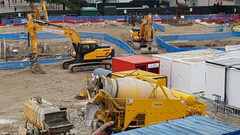 Contract adjudications are meant to provide a speedy, cost-effective and conclusive means of resolving disputes and, as a High Court case showed, judges are extremely reluctant to see them deteriorate into satellite litigation.
Contract adjudications are meant to provide a speedy, cost-effective and conclusive means of resolving disputes and, as a High Court case showed, judges are extremely reluctant to see them deteriorate into satellite litigation.
A construction company referred its dispute with two other companies to an adjudicator. After he set a timetable, the other companies sought an emergency injunction with a view to stopping the adjudication in its tracks. They argued that the adjudicator clearly lacked jurisdiction to consider the matter and that it would be wrong to allow the proceedings to continue to an unenforceable conclusion.
In dismissing the application, however, the Court observed that it is extremely rare for judges to intervene in ongoing adjudications. The adjudicator had taken the view that the other companies had, by their actions, implicitly submitted to his jurisdiction and foregone the opportunity to challenge his nomination by the President of the Royal Institution of Chartered Surveyors.
The Court noted that there was nothing unusual about the case and that the grounds of challenge to the adjudicator’s jurisdiction were entirely run of the mill. There were powerful public policy reasons why quibbles or challenges on jurisdictional grounds should be made not whilst an adjudication is underway, but subsequently when it comes to enforcement of an award.



